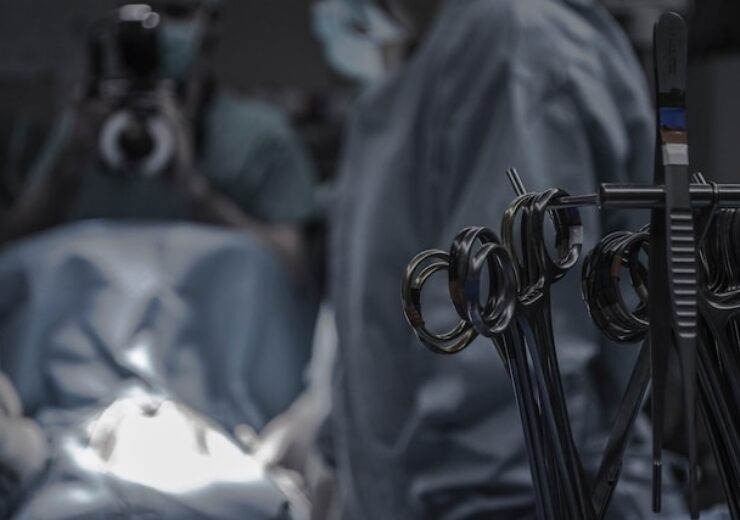The Stellar Knee system leverages advanced visual display technology to combine physical surgery and virtual surgical guidance to provide surgeons with real-time access to intraoperative anatomic data used to measure, plan, and guide total knee arthroplasty procedures

Polaris AR secures FDA nod for Stellar Knee system. (Credit: Piron Guillaume on Unsplash)
US-based mixed reality surgical guidance technology provider Polaris AR has received the US Food and Drug Administration (FDA) 510(k) approval for its Stellar Knee System.
Stellar Knee leverages advanced visual display technology to combine physical surgery and virtual surgical guidance, creating a digital operating room (OR) environment.
The digital OR atmosphere provides surgeons with real-time access to intraoperative anatomic data used to measure, plan, and guide total knee arthroplasty procedures.
Polaris AR said that Stellar Knee requires minimal physical setup, an easy integration process, and is competitively priced compared to traditional surgical guidance systems.
Polaris AR CEO Paul Mikus said: “Our software has the capacity to usher in the next generation of surgical advancements. This is a new day for orthopaedics, and surgery as a whole because the promise of Augmented Reality is now being fulfilled.
“Stellar Knee is pioneering a new class of surgical software that utilises best-in-class spatial computing and optimises operating room workflow.
“Stellar Knee not only impacts the surgeon and the patient but also empowers healthcare providers to change the standard of care.”
Stellar Knee leverages a combination of optical tracking algorithms and spatial computing software to measure and capture clinically meaningful hard and soft tissue anatomic data.
It also helps surgeons with sub-millimetric intraoperative planning and provides them with resection accuracy and guidance.
The system does not require any OR space but comes with a mixed reality headset that serves as a 3D spatial computing tool to acquire patient-specific anatomic data and digitise the information into holographic displays.
It captures the surgeon’s field of view and creates a real-time digital data exchange between the surgeon and the technology that informs clinical decisions.
Surgeons have full interactive capabilities with a highly customisable and intuitive user interface, enabling them to make quick assessments and micro-adjustments to the surgical plan.
Polaris AR said that Stellar Knee is its first to receive FDA approval and is offering the system workflow as an open source, for use across all total knee replacement implant systems.
University of California professor of orthopaedic surgery Francis Gonzales said: “Technological advancements don’t always correlate with improvements within the OR. Stellar Knee is an exception.
“With no footprint outside of the headset, no computers, or stalls, it does the thing it was designed to do brilliantly well, empower me to focus on what matters most, the surgery, and to be confident in the decisions I make.”
Columbia University Irving Medical Centre orthopaedic surgery associate professor John Cooper said: “Prior to Stellar Knee, I was dependent on either the imprecision of conventional instrumentation, or complex technologies like robotics to improve surgical precision.
“These technologies, while delivering important data that can be used to personalise the operation for each patient, require a large footprint in my OR and a significant financial commitment from my institution.”
